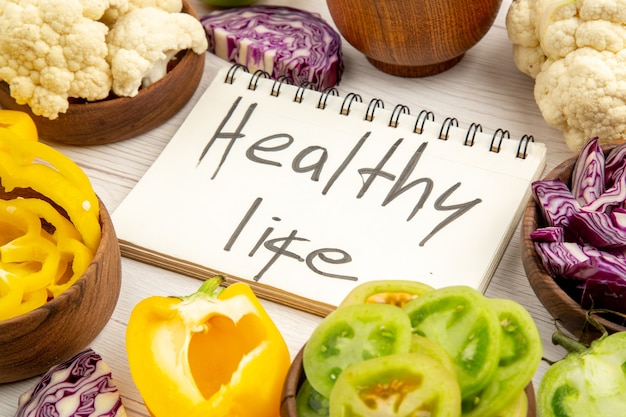Adopting a Vegetarian Diet: A Path to Better Health
Switching to a vegetarian diet can be a great way to improve your overall health. This type of diet is typically rich in fiber, folic acid, vitamins C and E, magnesium, unsaturated fats, and numerous phytochemicals. As a result, vegetarians often have lower cholesterol levels, are generally thinner, have lower blood pressure, and face a reduced risk of heart disease. Let’s delve into some other benefits of adopting a vegetarian or vegan lifestyle.
Vegetarian Diet: What are the Benefits?
May Improve Mood
Arachidonic acid, which is commonly found in animal products, has been linked to mood disturbances. Vegetarian diets are low in this substance, which can be beneficial. Research from Benedictine University has shown that limiting animal products can lead to mood improvements. Additionally, a study by Croatia’s Institute for Medical Research and Occupational Health found that vegetarians tend to have lower levels of neuroticism.
May Improve Symptoms of Psoriasis
Psoriasis is a skin condition that causes redness and irritation. Research from Brazil’s Universidade Federal de Pernambuco suggests that a vegetarian diet may help alleviate the symptoms of psoriasis.
May Reduce Incidence of Diabetes
Studies from Loma Linda University School of Public Health indicate that vegetarian diets are linked to a significant reduction in the incidence of diabetes. George Washington University School of Medicine also confirms that vegetarian diets can help manage diabetes and reduce the likelihood of developing it by half.
Reduces Risk of Cataract Development
Research from the Nuffield Department of Clinical Medicine at the University of Oxford has found a strong correlation between diet and the risk of developing cataracts. Meat eaters have a higher risk, while vegetarians and vegans have the lowest risk.
Reduces Risk of Cardiovascular Disease
According to the JCU University Skin Cancer Research Clinic, there is a link between a vegetarian diet and a decreased risk of cardiovascular disease. This is likely because vegetarian diets are rich in antioxidants, which help reduce oxidative stress and atherosclerosis.
Vegetarians Usually Have Low Cholesterol
Animal fat offers no health benefits and can be detrimental. Korean researchers have found that vegetarians tend to have lower body fat and cholesterol levels compared to omnivores.
Less Risk of Stroke and Obesity
Vegetarians and vegans are generally more mindful of their food choices and less likely to binge eat or choose foods based on emotions, which helps reduce the risk of obesity. The University Hospital Ghent Department of Paediatrics in Belgium reports that a vegetarian diet can lower the chances of having a stroke or becoming obese.
Less Chance of Developing Kidney Stones
New York University Langone Medical Center states that eliminating animal protein in favor of vegetables can result in a higher urine pH, which is associated with a lower risk of kidney stone formation.
It Can Satisfy All Your Nutritional Requirements
Contrary to popular belief, vegetarians and vegans can meet all their nutritional needs. The American Dietetic Association asserts that a well-planned vegetarian or vegan diet is nutritionally adequate for all ages and stages of life, including infants, the elderly, and athletes. Such diets are linked to good health, reduced disease incidence, and better management of existing health conditions.
What’s in Your Diet?
Dr. Group, DC, provides guidance on transforming your diet for a healthier, happier life. Enter your email below to receive a free guide on following a healthy diet.

